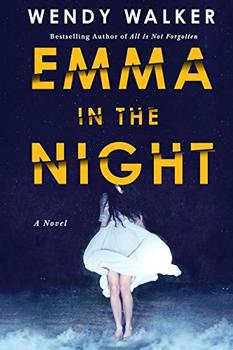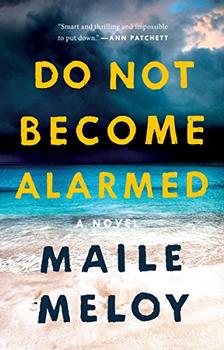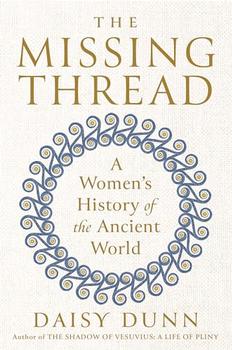Summary | Excerpt | Reviews | Beyond the book | Read-Alikes | Genres & Themes | Author Bio

The opening chapter of Abbie Taylor's debut novel, The Stranger on the Train, took me right back to one summer day during high school. I was babysitting my five-year-old sister, and since I didn't yet have a driver's license and she couldn't ride a bike very well, we got around our Midwestern town using the small, but adequate, city bus system. That particular day, after I let her pull the cord for our stop and the bus pulled over to the curb by the entrance to the swimming pool, I exited the bus via the rear door and then turned around to help my sister down the stairs - but in that moment, the bus doors slammed shut and the bus pulled away with my sister still on board. Fortunately, a fellow passenger helped alert the driver to the situation as I ran after the bus, and I was reunited with my sister after only a half block or so. But I'll never forget that moment of panic as I watched my little sister's bewildered and frightened face disappear from view.
That situation, only a hundred times more taut and heartbreaking, opens Abbie Taylor's novel. In this case, though, the child in question is much younger - thirteen-month-old Ritchie - and the transit system in question is far more extensive—the London Underground. Single mother Emma, desperate for an opportunity to get out of her small apartment with her demanding little boy, has taken him on an excursion to an unfamiliar part of the city. Now it's time for them to go home, but through a completely ordinary (yet horrifying) series of events, Emma finds herself standing alone on the platform while the subway train, with Ritchie on it, speeds on toward the next station.
A series of events follow that almost seem designed to lead the police and social workers to question Emma's credibility, and even her sanity. Although desperate to find Ritchie, Emma lets these doubts and questions affect her own self-image, reinforcing her impression of herself as an unfit mother and even validating her occasional wish that Ritchie would somehow cease to exist, allowing Emma to return to her previous, relatively carefree life. In Taylor's narrative, scenes from the investigation - in which Emma and a sympathetic onlooker from the Tube station eventually take matters into their own hands - are interspersed with scenes from Emma's brief relationship with Ritchie's father, her exhausting early days of motherhood, and her more recent feelings of isolation, inadequacy, and frustration.
The missing child plot, of course, brings to life every parent's worst nightmare. Equally unsettling, however, is the way in which Taylor brings to light many of the secret and ugly desires that mothers may occasionally have, but can only rarely articulate. Some elements of the suspense story and the kidnapping investigation occasionally strain credulity, but Emma's uneasy attempts to come to terms with her changed relationship with friends and colleagues from her pre-baby days are extremely realistic, and so are her difficulties making friends with other young mothers whom she views as more competent and confident than herself. Taylor also nails the intense, but often contradictory, nature of motherly love, especially for a young woman without much support. And her acknowledgment of the fact that a mother might fantasize about having her baby disappear, and yet would travel to the ends of the earth to find him if it actually happened, is spot on. The Stranger on the Train is the best kind of suspense novel—one in which the only reason readers might pause their rapid page-turning, is to contemplate its powerful themes about motherhood, class, and community support for parents.
![]() This review
first ran in the July 9, 2014
issue of BookBrowse Recommends.
This review
first ran in the July 9, 2014
issue of BookBrowse Recommends.

If you liked The Stranger on the Train, try these:

by Wendy Walker
Published 2018
A searing psychological thriller.

by Maile Meloy
Published 2018
From a beloved, award-winning writer, the much-anticipated novel about what happens when two families go on a tropical vacation - and the children go missing.




Your guide toexceptional books
BookBrowse seeks out and recommends the best in contemporary fiction and nonfiction—books that not only engage and entertain but also deepen our understanding of ourselves and the world around us.